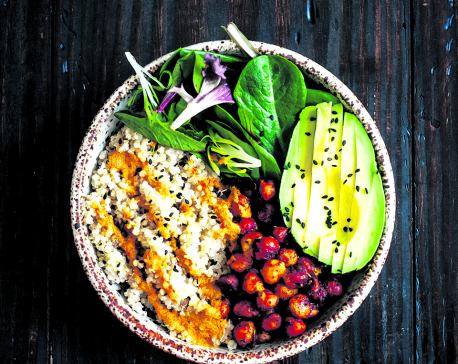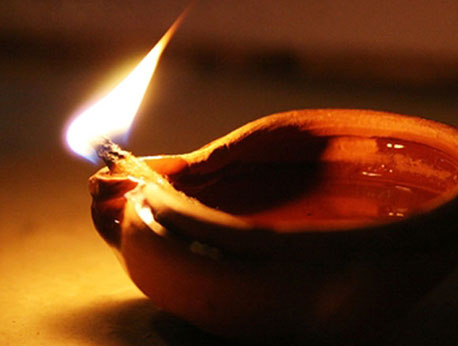
OR

We have all been taught to say ‘thank you’ and ‘please’ in school and it’s been so ingrained in our system that we often utter these words without a second thought. But if you think about it, are you really feeling grateful when you thank someone? Or are you just saying it because it’s ‘good manners’? Often times, it’s the latter and though we are a civilized lot today, we have, somewhere along the line, started taking our lives for granted and forgotten to be truly thankful.
Gratitude is a virtue that can help you stay positive in life. Being grateful doesn’t mean convincing yourself of some bogus notion that everything is fine when it’s not. But it means you choose to focus your time and attention on what you appreciate. The goal is not to block completely out difficulties, but to approach those difficulties with a different perspective, a positive one for that matter.
A friend was recently talking about how her father abhors a doctor because he doesn’t (apparently) ‘talk properly’. This doctor in question saved her father’s life by rushing to the hospital as soon as she called him after her father suffered a stroke. But instead of focusing on that important fact, my friend’s father chooses to dig out the doctor’s ‘bad’ points and this, she says, makes him miserable when he could have been celebrating life and the fact that he’s got another shot at it.
Taking the time to be thankful and appreciative for things you have received, tangible or intangible, makes you feel more positive emotions, relish good experiences, improves your health, helps you deal with adversity and builds strong relationships. Appreciation also softens us. It soothes our turbulent minds by connecting us with the wonderfully ordinary things – great and small – that we might otherwise take for granted. There is a growing body of research that shows there are many psychological benefits to being grateful, including feeling happier and lowering stress, depression and anxiety. Not only that, there is also scientific evidence that expressing genuine gratitude on a daily basis can improve physical health as well by improving quality of sleep, heart health, and immune function.
The benefits of gratitude are aplenty so much so that Oprah Winfrey apparently tracked the things she was grateful for in a “gratitude journal” and that too for a decade. Some of the things she was grateful for included “eating cold melon on a bench in the sun” and “Maya Angelou calling to read me a new poem.” Billionaire Warren Buffett has often talked about how grateful he is to have achieved the success he enjoys today. Founder of Facebook, Mark Zuckerberg challenged himself to write one thank-you note a day to counter his critical nature and express more gratitude.
The thing is gratitude doesn’t need to be reserved only for momentous occasions. Yes, you might be really thankful about that promotion at work, or your friend planning a surprise birthday party for you. But you also have to learn to be thankful for something as simple as a delicious piece of chocolate cake or the fact that you can enjoy a cup of tea in the morning without anything ailing you.
I recently took up a 30-day gratitude challenge. Every day, the first thing I did after I woke up was think about all the good things in my life and send a silent ‘thank you’ out in the universe. The last thing I did before I hit the bed was write down all the good things that happened that day. Today, I can vouch for the fact that I’m much happier and positive than ever before. By choosing to be grateful about what I have, I feel much lighter and am better able to tackle the inevitable work or personal problems that is bound to arise as you go about your daily life.
Granted it’s not easy to see through bad times. However, you can look back at all the difficult moments of your life and appreciate what you got out of it: a lesson, a tougher skin, or even simply the experience that will help you make better choices in the future. Being grateful also helps you to be in the present by noticing what you have and stopping to acknowledge it. The thing is gratitude is an intrinsically rewarding process. Simply being grateful for being alive is a great way to motivate oneself to seize the day and enjoy the present moment.
However, in a society that’s governed by the haves versus the have-nots, and where money is all-powerful, it’s easy to be ungrateful. Sometimes we allow our negative emotions to rule us and affect our mood. At these times, it may appear difficult to actually feel thankful for anything. It happens to me too and when it does, I always remind myself that things could be much worse. Whatever your circumstances, they can always be even more difficult. I try to think about the fact that they are not so, and look at the positive side of my reality. It’s not easy but, with a little bit of practice, it’s not impossible either.
Being grateful is the best thing you can do for yourself. It heals you from within and makes you a better person. Not only will you be able to build better social relationships, you will feel a sense of peace and calm within you that you won’t get by doing anything else. Start by saying a thank you prayer in the morning for one thing you are most grateful for in life and see how this little habit transforms your thinking.
sharmaditi374@gmail.com
You May Like This

Thank you so much
You taught me to smile all the time, You granted myth of reel dragging to an end of crown, You... Read More...

V for Vegan
Going vegan is actually a piece of cake, say the vegans we spoke to but, according to experts, a vegan... Read More...

Thinking of Tihar
Laxmi is restless and does not stay in one place, so by lighting diyo we try to lure her into... Read More...



Just In
- 352 climbers obtain permits to ascend Mount Everest this season
- 16 candidates shortlisted for CEO position at Nepal Tourism Board
- WB to take financial management lead for proposed Upper Arun Project
- Power supply to be affected in parts of Kathmandu Valley today as NEA expedites repair works
- Godepani welcomes over 31,000 foreign tourists in a year
- Private sector leads hydropower generation over government
- Weather expected to be mainly fair in most parts of the country today
- 120 snow leopards found in Dolpa, survey result reveals







_20220508065243.jpg)








Leave A Comment